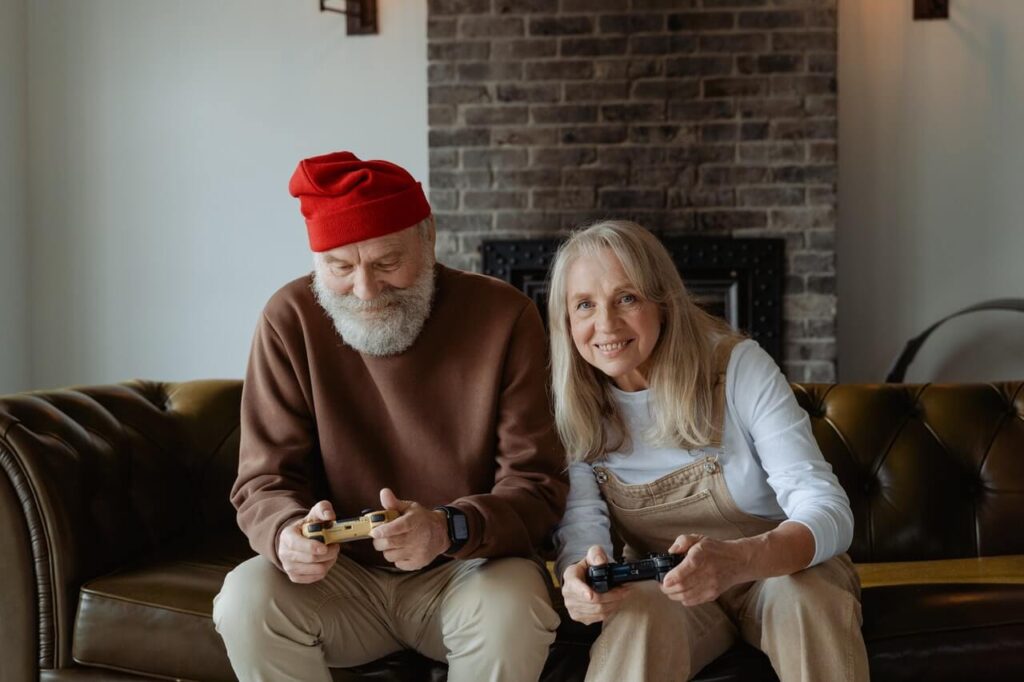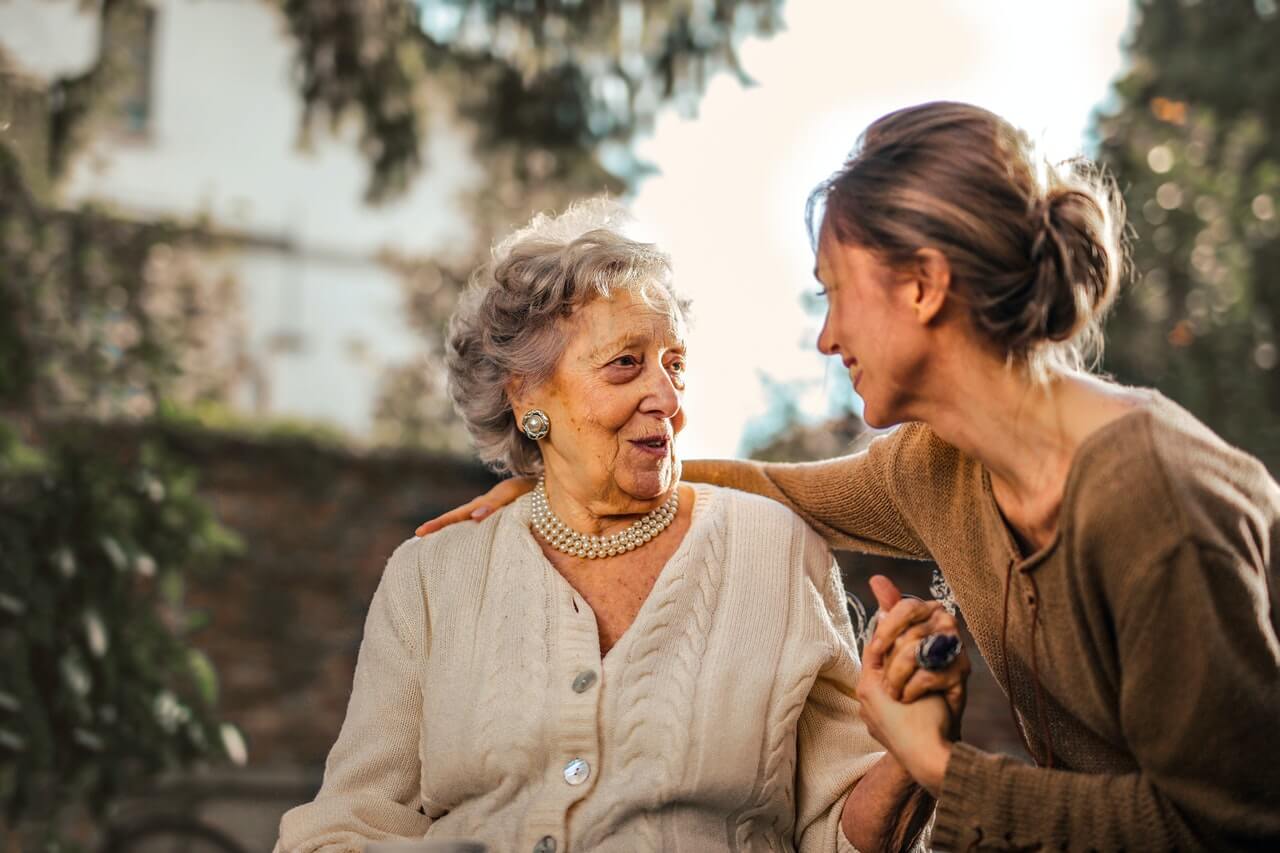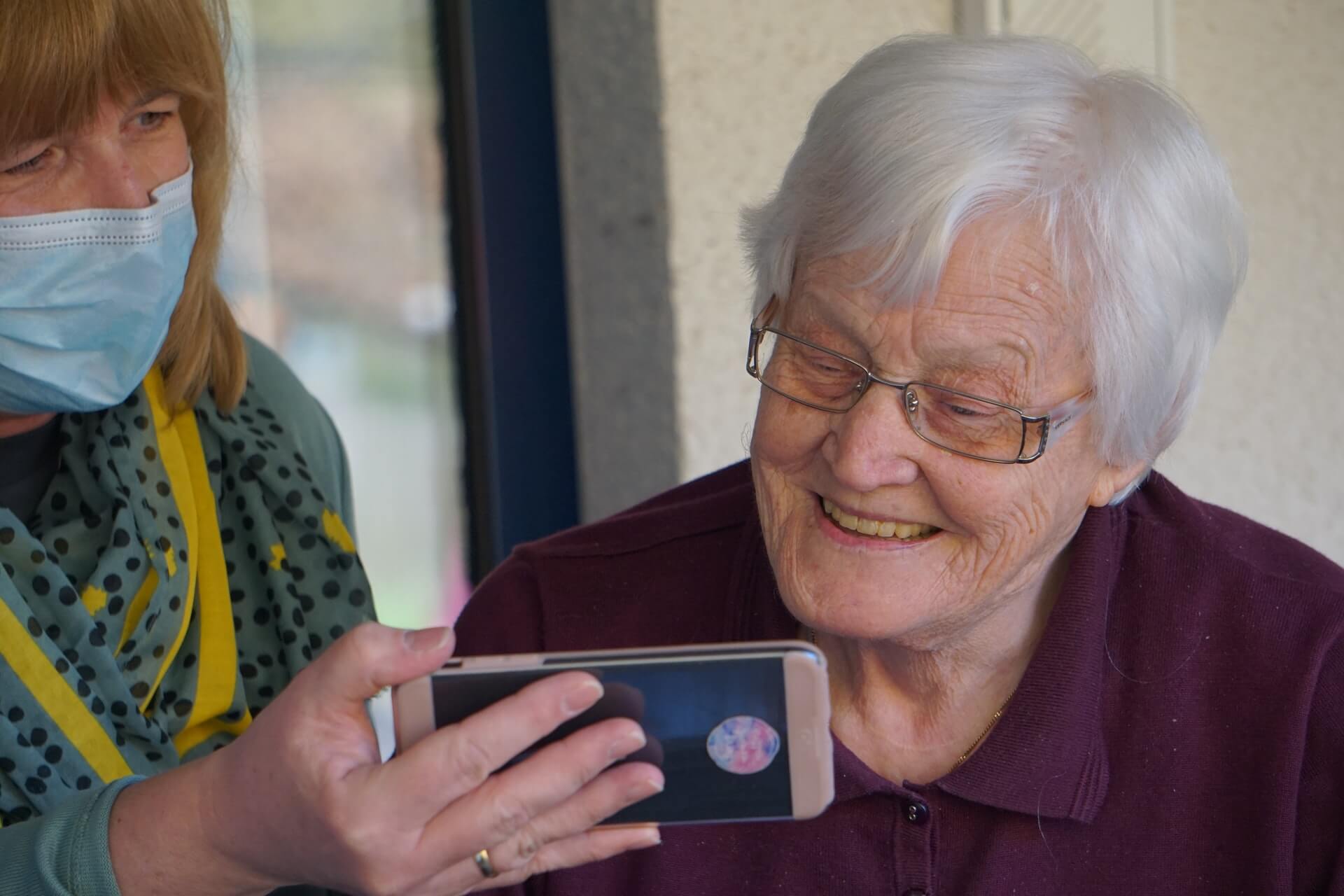Our bodies seem to follow a bell-curve of strength that starts at our infancy and ends with our life. It is important to understand the elders body and its limitations when seeking activities to share with them. This may mean speaking with the senior’s doctor or listening to any pain or exhaustion that they might experience from doing some activities. This article presents some suggestions for activities that may often be well appreciated well over age 65.
One fun activity to share is taking a moment to enjoy the rich beauty nature has to offer. You may take a day to walk in the park, watch the birds or go on a kayaking adventure. If you bring a camera, a good project may be to make a scrapbook of all your outdoor excursions and the birds you see. Many people enjoy the outdoors, so it may be great to find an outdoor activity that you both enjoy. You could also take turns introducing one another to your favorite outdoor activities. If the elder enjoys going for walks in the park and your hobby is drawing landscapes or fishing, you could take the time to share each one. By introducing one another to your favorite outdoor activities, you may find a great new hobby and create a memorable experience together.
There are many sports that you also may enjoy together that are not physically demanding such as tennis, swimming, horseshoes and golf. It is important to speak with the elder’s doctor provider before playing sports, to make sure that they have permission. In some cases, the elder may have a condition preventing them from playing high intensity sports. If this is the case, there are plenty of other activities that the professional may recommend.
Your community may have a center designed for these activities like a YMCA or a country club. Some high schools or universities will allow visitors to use their athletic facilities during specified hours, contact your local schools to ask about these opportunities. There may also be putt-putt golf courses, local parks and beaches in your area for you practice athletic activities or just appreciate the outdoors. If you enjoy exercising, Yoga and Thai Chi are also ways to stay physically fit and are often recommended for the elderly.
When the elder is exercising, it is important to warm up and cool incrementally. This is encouraged for anyone exercising, but is more important as we get older. By stretching, you are preventing your body from being sore or exceptionally tired after workouts. You are also greatly reducing the chance of injury of you and the elder. We can often be exited to begin with our activities for the day, but a simple ten-minute stretch can go far.
The elder you are caring for may not be capable of some activities and tasks that many can do. Some may have medical conditions or be on medication and have orders from their doctors to avoid such activities. For other elders, their physical condition may make some activities both dangerous and extremely time consuming. Shopping can be perceived as a simply task to some, but for the elderly it can become difficult and dangerous.
The elder may have trouble finding their way to the store, remembering what they need and is risking physical injury. By helping the elder shop or do other activities, you are making their lives easier and may be preventing serious injury. If you are unsure what activities the elder would like help with, do not be afraid to ask. By helping with too many activities without being asked, you may be harming their pride and feeling of independence.
It is often important to ask elders before helping, unless you believe that they are in physical danger of completing the task. By automatically helping you are sending the message that the elder is incapable of properly completing the task him or herself. Having difficulty completing tasks that were once considered simple may be embarrassing and diminish someone’s pride.
If you prefer to grow your own food for fun or enjoy natural foods, you may also help the elderly in their garden or create one. Having a garden may reduce stress and strengthen your emotional bond by creating life together. Gardening can be a simple activity or a very complex career. No matter what your skill level, there are many resources available to get you and the elder started on gardening. Some plants take less skill to grow than others; growing wild flowers may be easier than growing prize winning squash. If your gardening skills are hopeless, there is always the option of growing weeds. Although, some believe that they only come up when they are not desired.
Once you have collected the bounty in your garden or at the supermarket, you may help the elder prepare meals. If they are independent, the senior may not go through the effort of preparing full meals and may not have a well balanced diet. Cooking meals may be a fun way to help improve the physical and emotional health of the elder you care for, while improving your skills to impress guests. It may help to make large portions of meals or extras, so that the elder may easily prepare the meals again to enjoy your kitchen creation. If you or the elder does not enjoy cooking, they may be eligible for the meals on wheels program in your local community.
If you prefer literature or the arts to other activities, you may read or write with the elder that you are caring for. Our eyesight may decrease drastically as we age and reading small text may become difficult. Other people may develop arthritis and experience pain while gripping a pencil to write. For some elders, this loss can be devastating. Some people have retirement dreams of reading every day or writing a novel, just to discover that their physical condition prevents them from achieving this.
By helping the elder in these simple activities, you may just be working with them to achieve their dreams and ambitions. Even if the elder does not aspire to be the next Herman Melville, reading and writing is an essential activity in today’s society that you can help them to do.
A great way to spend time with one another and spread the value of knowledge may be to share your favorite books or poems. The elder may be aware of amazing classics novels and poems that you have not yet discovered and you may have insight on the latest best sellers. Together, you can share the rich experience of reading and explore new books.
You may also take a trip to your local art museum or gallery to share the art and educational experience with a loved one. Before you go, make sure that the elder can properly see so that they are not disappointed when entering the museum. Some paintings are positioned far from the eyes and some museums may prevent visitors from getting too close. If a distance rule exists at your local museum or gallery, try calling ahead and asking if they can accommodate the elder.
If you and the elder prefer creating more than observing, there are many low cost arts and crafts projects available online. Creating artwork and following instructions may give seniors a sense of accomplishment and pride. Their creation will be with them forever as a trophy to their achievement and with you as a reminder of your compassion. Sometimes local art centers have art classes available for painting, clay or mosaics and theatre. These classes often charge a fee, although they may have a discount for seniors or may be able to make accommodations upon request.
There are many other activities that you can share with the elderly. The important thing is to be creative and select things that you both enjoy doing. You can introduce one another to new activities, but no one likes to be forced into activities that they do not enjoy. If the elder asks you to do an activity that you do not enjoy, there is no need for you to continue doing it. If the elder seems to not enjoy an activity you share with them, recommend something else.




